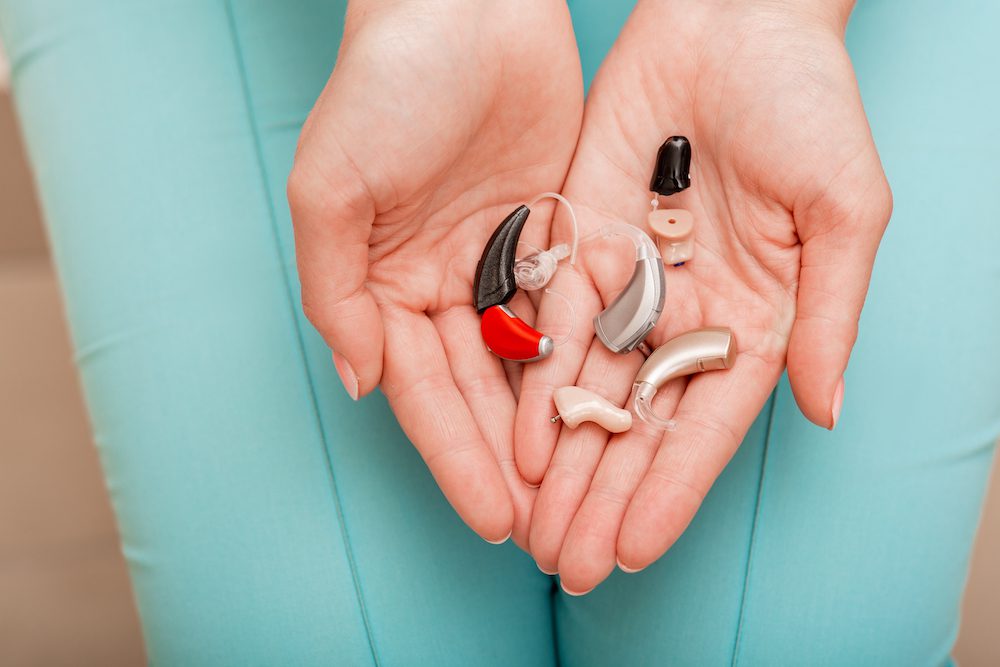Biometric Hearing Aids: What Are They and How Do They Work?
Your hearing loss is as unique as you are, and so should be the solution.

By: admin | March 29, 2023
Hearing loss is something that many people experience at some point during their life. You may have noticed that your hearing has started to deteriorate as you get older, or perhaps you have developed hearing loss as a result of illness or an accident. Many people find that their hearing loss impacts their lifestyle, and they struggle to do everyday things like follow conversations in busy places or hear the television clearly. If this sounds like you, then it’s likely that you could benefit from using hearing aids. But with so many choices out there, like prescription and over-the-counter (OTC) devices, how do you know what is right for you?
OTC hearing aids are a type of device that works to amplify sounds for people who experience hearing loss. These differ from prescription devices because they can be purchased without the assistance of a hearing professional. They are designed for individuals over the age of 18 with uncomplicated, self-perceived mild-to-moderate hearing loss.
Prescription hearing aids are likely the traditional ones you think of when you discuss these types of devices. To obtain prescription hearing aids, you’ll need to set up an appointment with a hearing professional to have your hearing tested and a baseline established. After that, you will go over the results with the professional to better understand what type of amplification you require.
There are numerous kinds of hearing aid styles available, allowing you to choose a device that fits comfortably and offers discreetness, or something more advanced and feature-rich. Some of the most common options include:
Choosing the right style for you will depend entirely on your personal preference and lifestyle. The benefit of having a hearing professional when getting a hearing aid is that they can help you find the most suitable fit for your unique hearing profile.
OTC hearing can be purchased by anyone 18 years and older who is experiencing self-perceived mild-to-moderate hearing loss, as they are designed to help amplify sounds to make everyday conversations easier. Some signs that you are experiencing mild-to-moderate hearing loss are:
For individuals experiencing more complex hearing loss or just noticing signs for the first time, it’s important to visit a hearing professional first. For example, if you are having trouble hearing loud noises such as trucks, sirens or loud appliances, then your hearing loss is considered severe and will require professional testing to determine the best course of action.
In addition, if you are experiencing any other ear problems, you may need to seek help from a hearing professional. These include:
There are a variety of things to consider when determining what type of hearing aid is right for you. While OTC hearing aids do make the technology more accessible, there are many perks of care you are giving up when you forego seeing a professional. Your hearing professional will not only help you find the right device, they’ll also educate you on the proper ways to handle, maintain and care for the technology.
OTC hearing aids are not a solution for everyone, and it is important to speak with your hearing professional if you are unsure. Scheduling an appointment with a hearing professional enables you to establish a baseline so that even if you don’t have a current degree of hearing loss present, you can monitor if it begins to degrade over time. To learn more about how hearing aids can help you, contact Life Hearing & Tinnitus Health Centers at (239) 963-2429.

Your hearing loss is as unique as you are, and so should be the solution.
By: admin | April 30, 2024

Hearing health is intricately linked to our overall well-being, yet the
By: admin | February 28, 2024

Hearing tests are necessary to assess your auditory function, but only two
By: admin | December 28, 2023
